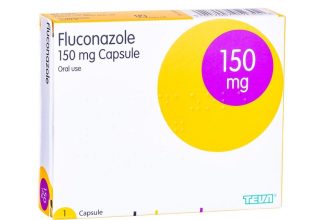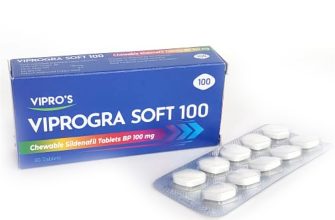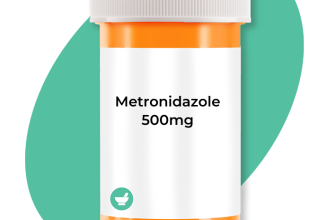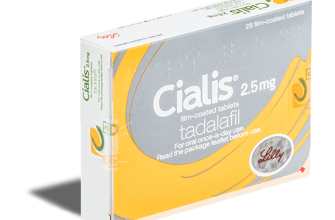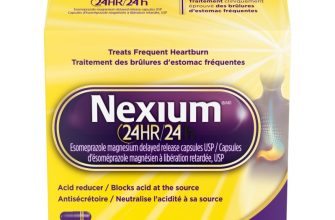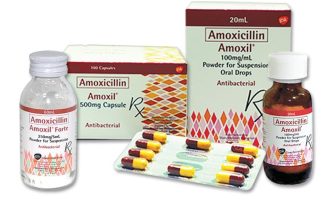For treating fungal infections in dogs, consider using generic Diflucan (fluconazole). This antifungal medication offers a practical solution for various conditions caused by yeast and fungi. Your veterinarian can prescribe the appropriate dosage based on your dog’s weight and health status. It’s crucial to follow their guidance to ensure a safe and effective treatment.
Generic Diflucan works by inhibiting the growth of fungi, making it a reliable option for infections like Candida or dermatophyte infections. Many pet owners report noticeable improvements in their dog’s health after starting treatment. Monitor your dog for any adverse reactions, such as vomiting or diarrhea, and consult your vet if you notice anything unusual.
Ensure you complete the prescribed course of medication even if your dog appears to recover quickly. Stopping treatment prematurely can lead to a recurrence of the infection. Keeping an eye on your dog’s progress and maintaining regular communication with your veterinarian will help achieve the best outcomes. Remember, a proactive approach is key to your pet’s recovery.
- Generic Diflucan for Dogs
- Understanding the Role of Fluconazole in Canine Health
- Indications for Using Generic Diflucan in Dogs
- Common Fungal Infections Treated
- Cases Requiring Precaution
- Dosage Guidelines for Administering Diflucan to Dogs
- Potential Side Effects and Precautions for Canine Patients
- Comparing Generic Diflucan to Brand-Name Options for Dogs
Generic Diflucan for Dogs
Generic Diflucan, or fluconazole, treats fungal infections in dogs. It is particularly effective for Candida and Aspergillus species. Dosage typically varies based on the dog’s weight and the severity of the infection, so consulting a veterinarian for precise dosing is essential.
This medication often comes in tablet form, which can be disguised in food for easier administration. Keep an eye on your dog for any signs of side effects, including nausea, vomiting, or changes in behavior. Regular follow-ups with your vet can ensure the treatment is working and that
Understanding the Role of Fluconazole in Canine Health
Fluconazole plays a significant role in treating fungal infections in dogs. This antifungal medication is commonly used to combat diseases caused by various fungi, including Candida and Cryptococcus. It works by inhibiting the synthesis of ergosterol, a vital component of fungal cell membranes, thereby disrupting their structure and function.
Veterinarians often prescribe fluconazole for dogs suffering from systemic mycoses, especially those with compromised immune systems. Its effectiveness against deep-seated fungal infections makes it a go-to option in critical cases. In cases of superficial infections, it provides an alternative for pets that may not respond well to topical treatments.
Dosing typically depends on the severity of the infection and the dog’s weight. Regular monitoring and follow-up appointments are essential to assess the treatment’s success and manage any potential side effects, such as liver enzyme elevation or gastrointestinal upset.
Fluconazole has a favorable safety profile, which contributes to its popularity among veterinarians. However, it’s important to disclose any other medications your dog is taking, as fluconazole can interact with certain drugs, potentially altering their effectiveness.
While fluconazole is beneficial, ensure proper veterinary guidance throughout the treatment process. Completing the full course of medication helps prevent recurrence of the infection, contributing to lasting health improvements in your canine companion.
Indications for Using Generic Diflucan in Dogs
Generic Diflucan is beneficial for treating fungal infections in dogs. It effectively targets conditions caused by Candida and dermatophytes. This medication is particularly useful for skin infections, ear infections, and systemic fungal infections, which can affect various organs.
Common Fungal Infections Treated
Veterinarians often prescribe Diflucan for yeast infections, commonly seen in dogs with allergies or hormonal imbalances. The medication helps alleviate symptoms such as itching and inflammation, promoting a quicker recovery. Additionally, Diflucan can be effective in treating ringworm, a highly contagious fungal infection that affects the skin and hair. Timely treatment is crucial to prevent spreading to other animals or humans.
Cases Requiring Precaution
While Diflucan is helpful, certain health conditions may require caution. Dogs with liver disease or those on specific medications may need careful monitoring. Always consult your veterinarian for personalized advice and dosage adjustments based on your dog’s health status.
Dosage Guidelines for Administering Diflucan to Dogs
The recommended dosage of Diflucan (fluconazole) for dogs typically ranges from 3 to 5 mg per kilogram of body weight. This dosage can vary based on the specific condition being treated and the individual dog’s health.
Administer Diflucan once a day for treating most fungal infections. For severe cases, your veterinarian may suggest increasing the frequency to twice a day. Always follow the veterinarian’s instructions regarding the exact dose and frequency tailored to your dog’s needs.
Ensure accurate dosing by weighing your dog before starting treatment. If your dog weighs 10 kg, a daily dose would range from 30 mg to 50 mg. Use a precise scale and dosing syringe for small amounts to avoid errors.
Monitor your dog for any side effects, including vomiting, diarrhea, or changes in appetite. Report these promptly to your veterinarian. Regular blood tests may be necessary to check liver function during treatment.
If a dose is missed, administer it as soon as you remember, unless it’s close to the time for the next dose. Avoid doubling up; just continue with the regular schedule.
Always consult your veterinarian for adjustments or specific recommendations. Each dog’s health status and medical history play a crucial role in determining the most appropriate dosage.
Potential Side Effects and Precautions for Canine Patients
Monitor your dog for any unusual reactions after administering generic Diflucan. Common side effects include gastrointestinal upset, such as vomiting or diarrhea. If these symptoms persist for more than a day, contact your veterinarian.
Allergic reactions may occur, resulting in itching, swelling, or difficulty breathing. If you notice any of these signs, seek immediate veterinary assistance.
Consider potential interactions with other medications. Always inform your vet of any other treatments your dog is receiving to avoid adverse effects.
Maintain hydration, as antifungal medications can lead to changes in liver function. Regularly check your dog’s water intake and overall health during the treatment period.
Conduct liver function tests as recommended by your veterinarian, especially if your dog is on long-term treatment. This helps detect any abnormalities early.
Use with caution in pets with pre-existing liver disease or those who are pregnant. Discuss these conditions with your vet before starting the medication.
Never adjust the dosage without consulting your veterinarian. Adhering to prescribed amounts ensures safety and effectiveness.
Stay observant during and after treatment. Report any concerns or changes in behavior to your veterinarian promptly for further evaluation.
Comparing Generic Diflucan to Brand-Name Options for Dogs
Generic Diflucan offers a cost-effective alternative to brand-name options for canine fungal infections. Both types of medication contain the same active ingredient, fluconazole, ensuring similar therapeutic effects.
- Cost: Generic Diflucan is typically less expensive, making it a budget-friendly choice for pet owners.
- Availability: Generics often have wider availability at various pharmacies, enhancing convenience.
- Formulations: Both generic and brand-name versions come in similar formulations–tablets and oral suspensions–providing flexibility in administration.
- Efficacy: Clinical studies show no significant differences in efficacy between generic and brand-name versions, ensuring that both can effectively treat fungal infections.
- Side Effects: Potential side effects remain the same for both options, including nausea and liver enzyme changes, requiring monitoring during treatment.
Choosing between generic and brand-name Diflucan ultimately depends on personal preferences and financial considerations. Consult with your veterinarian to confirm the best option for your dog’s specific needs and health status.


